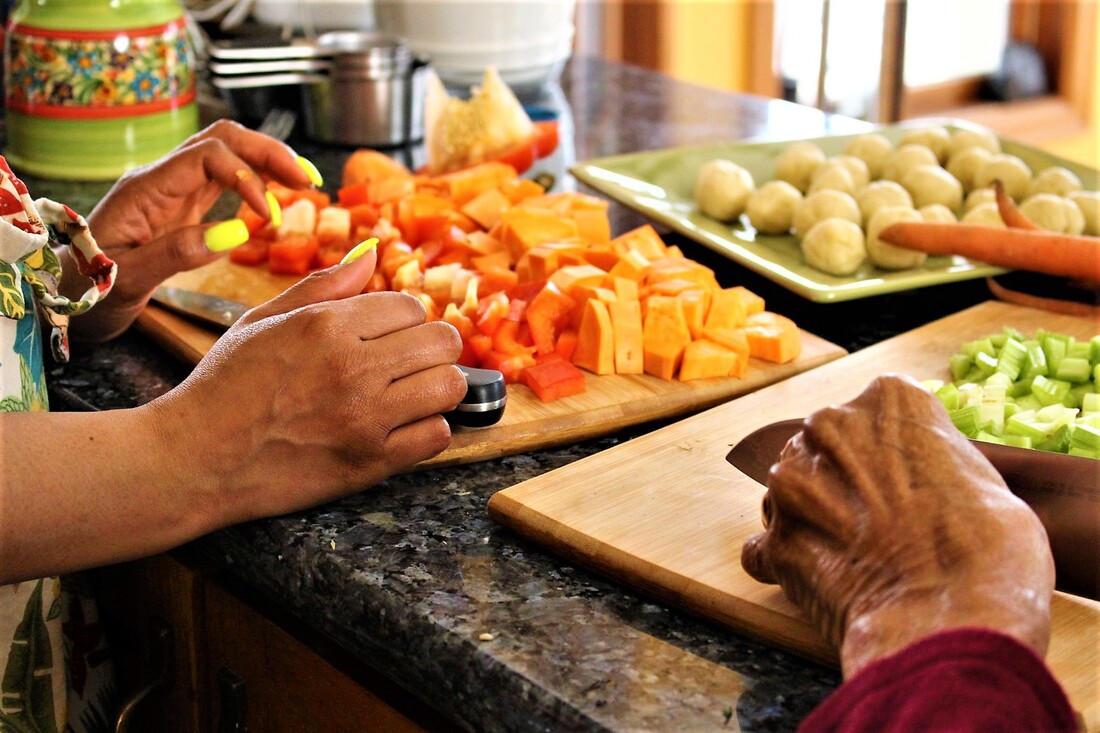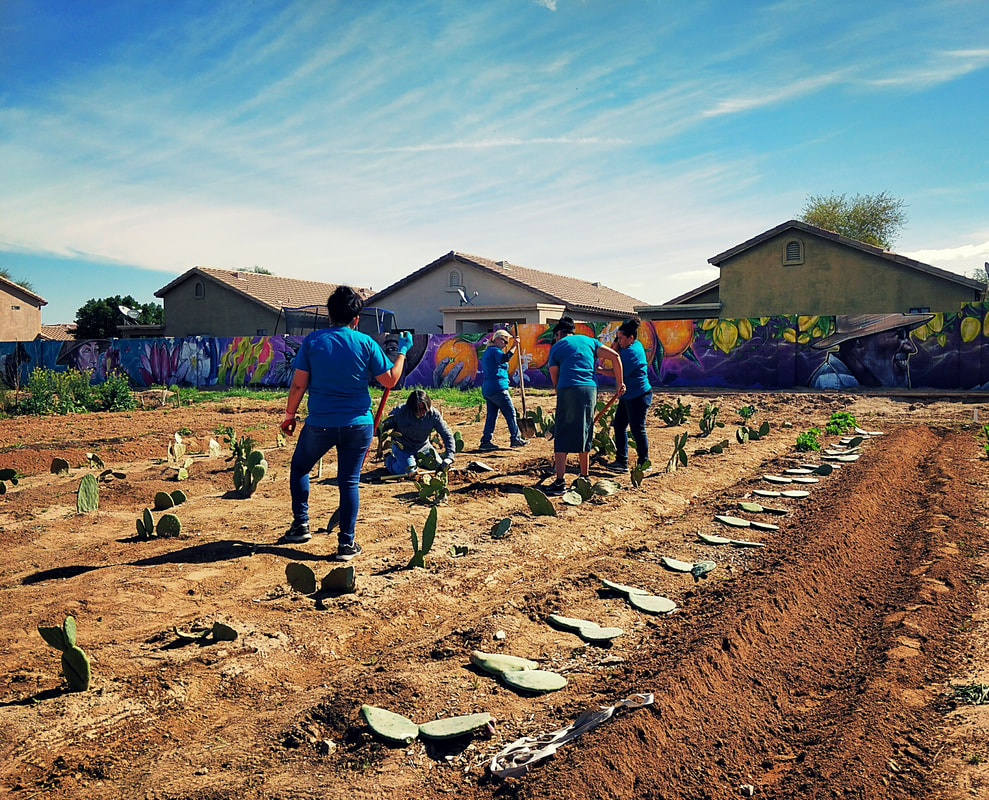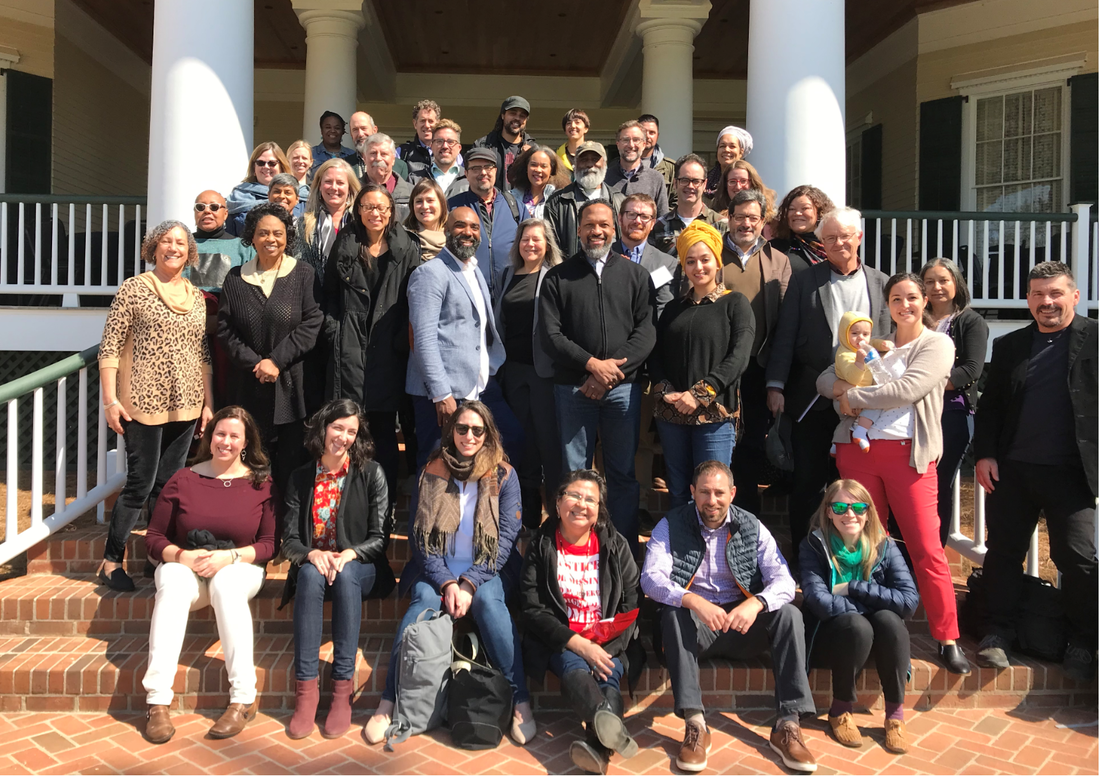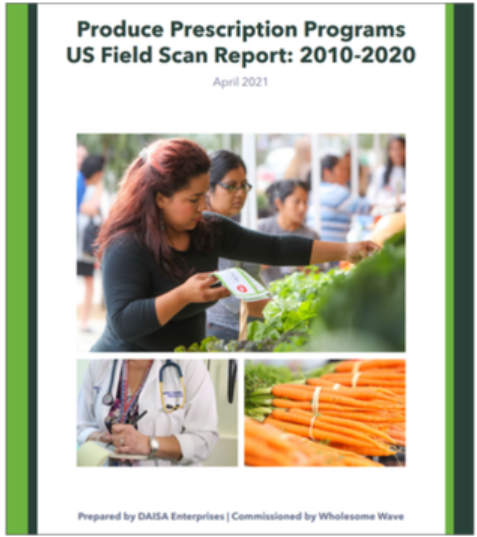Clemmons Family Farm - Charlotte, Vermont
As part of their ongoing research to better understand how arts and culture play an intentional role in place-based community development, in 2018 ArtPlace America commissioned a field scan about the food and agriculture sector. DAISA Enterprises was selected as a research, facilitation, and thought partner to lead this work. DAISA’s deep food systems knowledge and consulting experience, including role as National Program Office for the Kresge Foundations’ Fresh, Local and Equitable initiative, made us a natural fit.
The research report - Cultivating Creativity: Exploring Arts & Culture in Community Food Systems Transformation - informs current knowledge and practice around how arts and cultural approaches can be better leveraged to create equitable and place-based food systems change across the country - spanning rural, tribal, and urban settings. Launched at the 2019 Artplace Summit, the field scan is contributing to building the fields of arts and culture and community development, informed by creative placemaking and grounded in the experiences of artists and community change-makers.
THE RESEARCH PROCESS
In what types of community-based effort is artistic and cultural expression contributing to food and agricultural outcomes? Research included examining grant databases of ten relevant federal agencies and foundations and identifying 180 projects integrating arts and culture with food and agriculture. Projects included community gardens & farms, community gathering spaces, community & incubator kitchens, culinary arts projects, food & agricultural tourism and celebration efforts, and food markets. Interviews with thirty-one food systems practitioners, artists, and field thought leaders from communities across the country illuminated powerful wisdom and lived experience:
The research report - Cultivating Creativity: Exploring Arts & Culture in Community Food Systems Transformation - informs current knowledge and practice around how arts and cultural approaches can be better leveraged to create equitable and place-based food systems change across the country - spanning rural, tribal, and urban settings. Launched at the 2019 Artplace Summit, the field scan is contributing to building the fields of arts and culture and community development, informed by creative placemaking and grounded in the experiences of artists and community change-makers.
THE RESEARCH PROCESS
In what types of community-based effort is artistic and cultural expression contributing to food and agricultural outcomes? Research included examining grant databases of ten relevant federal agencies and foundations and identifying 180 projects integrating arts and culture with food and agriculture. Projects included community gardens & farms, community gathering spaces, community & incubator kitchens, culinary arts projects, food & agricultural tourism and celebration efforts, and food markets. Interviews with thirty-one food systems practitioners, artists, and field thought leaders from communities across the country illuminated powerful wisdom and lived experience:
“Art and culture is really compatible with the food and agriculture sector, because they are both really creationary. [...] Because you can approach agriculture from a systematic mentality that is extractive or you can approach agriculture from a perspective or mentality that is creationary and diverse. So bringing arts and culture to agriculture is a way to restore a more regenerative agriculture system.”
Lehua Simon, Artist, Mālamalama Maui Project
Lehua Simon, Artist, Mālamalama Maui Project
Desert Botanical Garden Spaces of Opportunity - Phoenix, Arizona
THE WORKING GROUP: TESTING OUR FINDINGS
In early March 2019, DAISA and ArtPlace - along with co-conveners Rural Coalition and Farm Credit Council - held a working group meeting to discuss initial research findings and to craft potential steps forward. A total of forty-one participants convened in Albany, Georgia, hailing from twenty-two different states, Puerto Rico, and the District of Columbia. Among the group were farmers, community practitioners, artists, community organizers, funders & financers, chefs, government and policy representatives, media, and academic leaders. Participants came from both rural and urban geographies, as well as numerous racial and ethnic communities from across the country.
The Arts, Culture & Food/Agriculture Working Group Meeting was held at Resora on Cypress Pond, a 1638-acre former plantation in southwest Georgia currently owned by black-led grassroots organization New Communities and operated as a retreat and conference center and a working farm. The space was chosen to host the Working Group meeting in order to honor the history of black farmer-led civil rights activism and to support New Communities’ mission of providing a restorative space for environmental and economic justice and racial healing.
Working Group Participants at Resora - Albany, Georgia, March 2019
Meeting participants heard inspiring work from three community practitioners - representatives from La Mujer Obrera, Wormfarm Institute, and Inner-City Muslim Action Network - presenting “Stories of Change” that brought to life the vibrancy of arts and culture-infused food and agricultural efforts. Participants delved deeply into the draft key findings to identify gaps and opportunities for refinement. Grounded in the power and beauty of the Resora farm, the group identified critical needs that exist to continue uplifting equity, social justice, and community healing through arts & culture-infused food systems transformation.
WHAT WE FOUND
The report reveals that arts-integrated food systems work provides a uniquely accessible and effective way to:
- Bridge and heal divides
- Drive equitable food oriented development and rural vitality
- Transform community spaces and celebrate identity
- Promote secure land tenure
- Ignite creative, community-led processes
- Preserve and reclaim food & farming traditions
What specifically about the intersection of arts and culture with food and agriculture allows for these powerful change-making processes to occur? We found that integrating arts and culture with food and agriculture enables a creative and inclusive visioning and planning process, and ensures community members see their identities, histories, and interests reflected in the work. Eating and growing practices often connect to the very center of who we are as individuals and communities. Food and agriculture both articulate with our connections to history, place, environment, sustenance, joy, and communion. Integrating eating and growing practices with creative reflection and action enables people to see themselves reflected in the work, and drives home the potential for personal and community change.
Utilizing creative placemaking strategies encourages community members to join their neighbors in identifying and creating relevant and innovative responses to local challenges. Creative placemaking that connects intentionally to food and agricultural practice provides a tangible and deeply interconnected way to drive food systems change and shape the future of a community. Community development efforts within the subsector of food and agriculture that lift up the importance of arts and culture provide a unique opportunity to improve quality of life in connected, meaningful, and equitable ways for community residents.
Thunder Valley CDC - Porcupine, South Dakota
WHAT’S HAPPENING NOW?
DAISA and ArtPlace have recently committed to further collaboration on disseminating these findings and recommendations to spark new and deeper partnerships between stakeholders in food systems, arts and culture, community development, government, and philanthropy. Through conference presentations, public webinars, regional briefing calls, and other targeted outreach, DAISA will advocate for the role of artist-practitioners and artist-facilitators and demonstrate the power and efficacy of arts and cultural practices in helping create equitable and place-based food systems change across the country. DAISA will also coordinate and support artists direct participation in typically food-focused conferences and is working with ArtPlace to design a Federal briefing for US Federal agencies which examines this intersection within rural communities.
TAKE ACTION
Read the field scan to learn more about the key findings, recommendations, and initial thoughts on evaluating the success of this work.
Share the field scan and brainstorm how to better support artistic leadership and creative practice in your network and community!
Stay tuned to DAISA’s blog and Instagram for future announcements of webinars, presentations, and other opportunities to engage with the research.
Visit the ArtPlace Agriculture & Food page to read case studies and also check out their other community development sector field scans.




 RSS Feed
RSS Feed